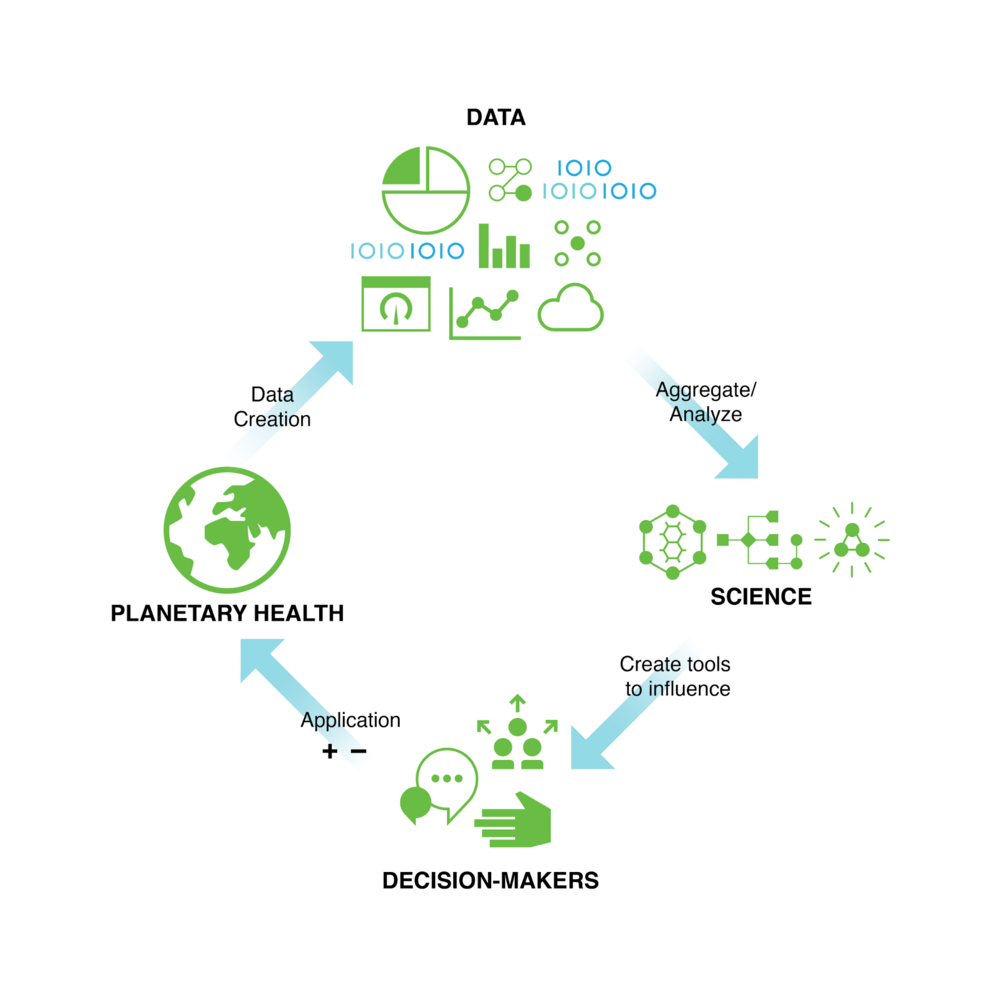A Tech Revolution For Nature
Mar 11, 2021
Apply now for the 2021 Techstars Sustainability Accelerator in Partnership with The Nature Conservancy
At Techstars, we believe that entrepreneurs can save the world. And our world needs saving right now. That’s why we teamed up with The Nature Conservancy in 2017 to support entrepreneurs solving the biggest threats to our planet across food, water, and climate challenges.
The Nature Conservancy, one of the most effective and wide-reaching environmental organizations in the world, provides the Techstars Sustainability Accelerator participants with their conservation know-how. Subject matter experts from The Nature Conservancy’s world-wide footprint engage with and mentor portfolio companies. Meanwhile, Techstars contributes its business and technology mentorship, a massive global network of investors and curated a 13-week intensive startup curriculum to support participants in accelerating their businesses
Applications are open now through May 12th for our third class. You can read here about our previous alumni from 2018 and 2019.
In addition to focusing on the investment themes below, we know backing diverse teams is a necessary and important part of real climate action. Climate change impacts us all, and those working to solve our challenges should be representative of that. We hope to provide hybrid in-person (Boulder, CO) and virtual programming this year, dependent upon COVID-19 conditions.
Key 2021 Dates:
Applications Close: May 12th
Program Starts: September 13th
Demo Day: December 9th
2021 Investment Thesis
We invest in startups whose business model is linked to their impact model. We are focused on investing in companies that can make a material contribution to building a world where people and nature thrive. By solving the top threats to nature, we can also improve the lives of millions of people.
CLIMATE CHANGE
Climate change mitigation
Carbon sequestration and capture, carbon sequestration measurement and market validation, carbon footprint measurement, precision forestry, sustainable timber, reforestation, blue carbon, community-based carbon measurement apps
Carbon risk analysis, scenario planning tools & cross-sector innovation
Carbon footprint tracking and reporting solution for CSR
Climate change adaptation
Advance nature-based solutions to lessen climate impacts (drought/flooding) (examples of nature-based solutions include: wetland conservation, open space protection, dam removal, groundwater infiltration, living shorelines) with technologies such as innovative insurance and finance models, remote sensing, and spatial planning.
HEALTHY OCEANS, FRESHWATER & LAND
Protected Land and Water
Technology that unlocks conservation investment in land and ocean protection, coastal restoration, expand community-led conservation, protect oceans, protect water at its source, build ‘zero-deforestation’, sustainable or wildlife-friendly supply chains
Technologies/approaches that reduce threats such as wildfires, floods, invasive species infestations, poaching
Energy and Infrastructure
Technology to improve energy siting, land-use planning and development, renewable energy planning, mitigation mapping, build a model of sustainable energy development, and inform smart infrastructure decision-making
Indigenous People and Local Communities
Technology that facilitates community-based natural resource management, multi-stakeholder engagement, sustainable economic development for local communities and indigenous peoples
Increase climate change-resilience
Knowledge-sharing & policy advocacy
Sustainable Forestry
Improved certification and tracking
Use of local wood species in manufacturing
Agroforestry
Sustainable Agriculture
Soil health and nutrients, zero-deforestation supply chains, sustainable yield increases, precision irrigation and fertilization, nutrient runoff monitoring, sustainable grazing, carbon capture, microclimate sensing, improved pest detection, eco-friendly pesticides/herbicides
Technology to support local supply and/or certified supply
Rethink agricultural practices - Agroforestry
Sustainable Fisheries
Catch monitoring, bycatch exclusion, supply chain transparency, vessel tracking, automated stock assessment, improve fishery health
Technology to support sustainable aquaculture such as monitoring systems, ecologically restorative business models, siting technologies, feed innovations,off-shore / open-ocean systems
Aquaculture
Water Security
Water Funds and Markets; Watershed-scale sensing, flow measurements, sensor connectivity, usage mapping technology, aggregating water data, groundwater recharge, fintech companies that assist in the arbitrage of water use/allocation
Water quality vs. water quantity
NATURAL CLIMATE INTELLIGENCE
The historical, current, and predictive information on our natural systems to power insights for climate mitigation and adaptation. (Adapted from Better Ventures)

Data, Science, and Insights
Tools that increase our understanding of/ monitor/ improve - ecosystem services, pollution, and natural resource use (Remote Sensing, GIS, IoT, Sensors/Hardware)
Tools that aggregate/understand/analyze/ visualize/ digitize planetary data.
Influence Decision Makers
Tools that better inform Natural Resource Managers (farmers/fisherman/industry etc)
Influence policy makers and business leaders to make more informed decision on positive climate action
Innovative finance and funding mechanisms that incentivize decisions to improve planetary health
Note: We will not be investing in companies directly competitive with our current alumni companies from 2018 and 2019.

